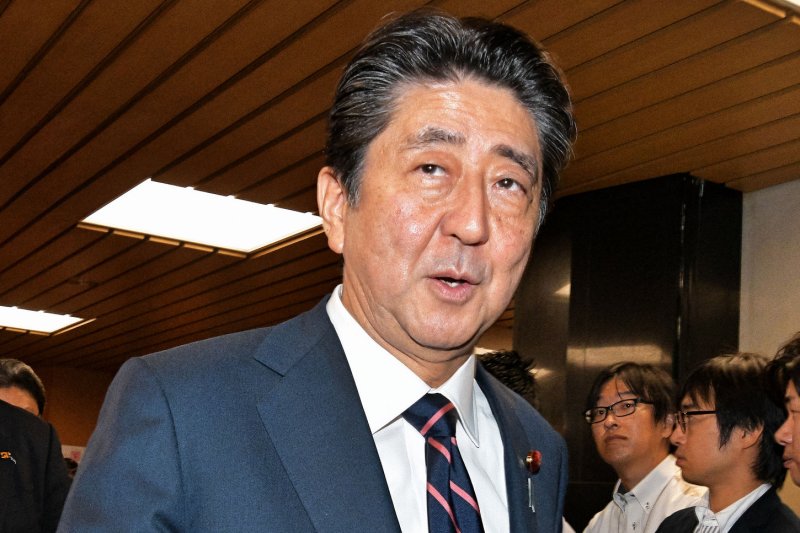Japan's Prime Minister Shinzo Abe is being accused of using a publicly funded event in July as a platform for his election campaign. File Photo by Keizo Mori/UPI |
License Photo
Nov. 20 (UPI) -- Shinzo Abe became the longest-serving prime minister in Japanese history on Wednesday, but his record-breaking tenure is being overshadowed by a new political scandal.
Abe, 65, who began his second term as prime minister in 2012, is being accused of using a publicly funded cherry blossom viewing party as an election campaign event, according to the Asahi Shimbun and other Japanese news services.
Chief Cabinet Secretary Yoshihide Suga said Wednesday among the 15,000 guests invited to the event, 1,000 people were "recommended" by Abe, while another 1,000 people were from a list provided by other Abe administration officials. A total of 6,000 supporters or affiliates of the ruling Liberal Democratic Party were invited, possibly to rally support for Abe's election in July, the Asahi reported.
The disclosure came after Abe told a Tokyo budget committee he "was not involved" in the selection of invitees to the event, where Japanese celebrities and athletes are featured as guests.
Jun Azumi, deputy secretary-general of the center-left Constitutional Democratic Party of Japan, has said the incident is "ironic," as well as "extremely regrettable."
Abe has been in office for 2,887 days, owing to effective campaigning, perceptions his economic policies are working and his steady appeal among right-wing supporters.
Support for Abe has enabled his political career to overcome other corruption allegations, including an illicit land sale in 2016 to a school foundation with links to first lady Akie Abe.
Abe's name was cleared in 2018, after Nobuhisa Sagawa, director-general of the financial bureau of the finance ministry at the time of the land sale, said he was the chief agent responsible for falsified documents.
The flower-viewing scandal and other incidents involving political appointees have taken a toll on Abe's approval rating, however. Abe's rating dropped by 6 percentage points from a month ago, to 49 percent, according to a poll conducted by Japanese newspaper Yomiuri Shimbun.















